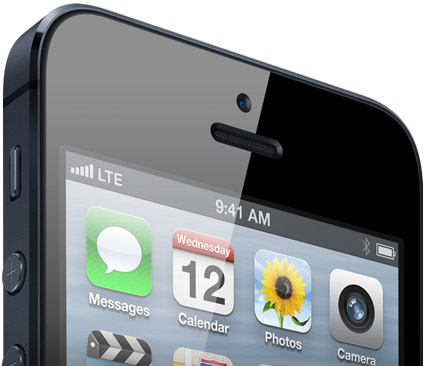
That sound you hear: Emerging markets sucking the margins out of iPhone. Gartner predicts that Chinese brand and white-box handset manufacturers will dramatically change the smartphone market's course this year. Android is likely to be the big beneficiary, while iPhone has the most to lose. Economies of scale will bite Apple, which benefits from one of the tightest supply chains anywhere. Chipset integration, for example, will allow handset makers to ship cheaper devices that are good enough, even if less than market leaders.
"The combination of competitive pricing pressure, open-channel market growth and feature elimination/integration will very soon result in the $50 smartphone", Mark Hung, Gartner research director, says. "Semiconductor vendors that serve the mobile handset market must have a product strategy to address the low-cost smartphone platform, with $50 as a target in 2013". That's right, 50 bucks, not the $650 Apple charges carriers.
Already, shifting market dynamics forebode big trouble for the fruit-logo company. While iPhone is top-seller in the United States, Androids easily own the world, buoyed much by Samsung's sales success. The electronics giant has much greater success selling to emerging markets than Apple, picking up many locales once dominated by Nokia. But what's bad for the American company could be for its South Korean competitor.
"Global, brand-name smartphone vendors must re-examine their product lineups to determine how their low-end offerings are differentiated from the competitive products offered by low-cost vendors", Hung warns. "Otherwise, brand-name smartphone vendors may want to cede this market to the white-box vendors and focus on high-end devices".
Myopic Analysis
The problem is something many American analysts, bloggers and journalists don't see. Their vision is myopic, looking at how handsets are sold here. iPhone 4 is free to a consumer buying locked device with two-year contractual commitment, which obviously is much less than $50. But in many other markets, China and India among them, consumers are accustomed to contract-free purchases -- well, except for iPhone. Carriers still pay Apple that six-fifty or more (less for the oldest iPhone available).
As less-capable smartphone prices go down, features go up and availability expands, buyers in emerging markets will buy what they can afford rather than what they might want. Stated differently: These devices will rapidly expand the low end of the market, where there is greatest growth potential, closing out iPhone, and, should Apple lower prices in response, sap margins.
Gartner hasn't yet released fourth-quarter smartphone figures, which tend to be the most accurate. While other analyst firms measure shipments into the channel, Gartner counts actual sales to end users. Past data reveals increasing demand for white-box smartphones.
Still, based on shipment data now available, emerging markets already favor lower-cost Androids to pricier Apples. For example, in the world's largest smartphone market, China, Android share reached 86 percent during Q4, compared to 12 percent for iOS, according to Strategy Analytics.
Emerging Trouble
"Smartphone shipments surged +64-percent annually in China during the fourth quarter of 2012", Neil Mawston, Strategy Analytics research director, says. "Android and Android forks together accounted for a record volume of all smartphones shipped in China last year".
Apple CEO Tim Cook calls China his company's most important market, accounting for 13 percent of revenues during the quarter, generated mostly by mobile devices.
Globally, Android surged to 70.1 percent smartphone share from 51.3 percent, according to Strategy Analytics. iOS share actually retracted, to 22 percent share from 23.6 percent -- that during iPhone 5's launch quarter. For all 2012, Android climbed to 68.4 percent from 48.7 percent, while Apple nudged up to 19.4 percent from 19 percent.
If Gartner's prediction proves true, Apple's global share -- and likely margins with it -- is likely to retract further. Samsung, which already sells lower-cost smartphones is better-positioned to adapt, also faces trouble, and the company acknowledges risk ahead. In its earnings release late last month, Samsung warns that 2012's smartphone growth would be "pacified" this year. "Demand for smartphones in developed countries is expected to decelerate, while their emerging counterparts will see their markets escalate with the introduction of more affordable smartphones and a bigger appetite for tablet PCs throughout the year".
You won't hear such warning from Apple.

